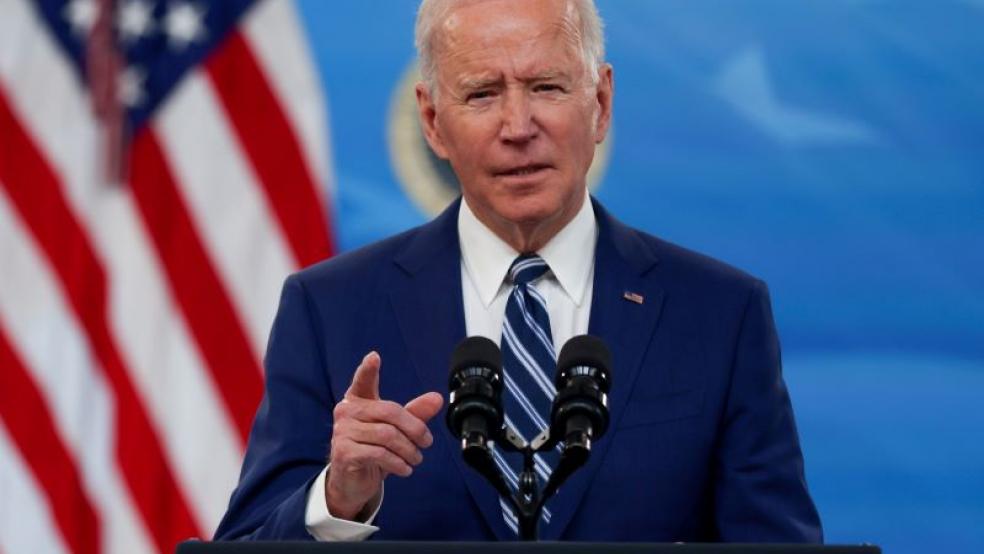President Joe Biden is expected to unveil the infrastructure portion of his “Build Back Better” program on Wednesday, and administration officials have signaled that the proposal could cost upwards of $3 trillion over a decade.
The proposal will be “sweeping in scope,” the Associated Press reported Tuesday, and include plans to invest in physical infrastructure, green energy and domestic manufacturing, with an emphasis on remaining competitive with China. A separate proposal focused on issues including health care, paid leave and education will be released later this spring.
The infrastructure proposal reportedly will include sources of revenue to cover its costs. “The president has a plan to fix our infrastructure and a plan to pay for it,” White House Press Secretary Jen Psaki said. “The speech tomorrow is about making an investment in America, not just modernizing our roads or railways or bridges, but building an infrastructure of the future.”
Biden’s revenue foundation: While any number of potential tax increases to pay for the plan have been discussed and may make it into the president’s proposal, Biden is focused on four in particular, Axios’ Hans Nichols reported Tuesday. The tax priorities Biden is “preparing to go to the mat for” include:
- increasing the corporate tax rate to 28% from 21%, which the Tax Policy Center says would raise $730 billion over 10 years;
- establishing a new global minimum tax on foreign subsidiaries of U.S. corporations, raising $550 billion;
- applying income tax rates to capital gains for wealthy households, raising $370 billion;
- raising the top individual tax rate back to 39.6% for households earning more than $400,000 per year, raising $110 billion.
Nichols says that the White House will spend less effort promoting other proposals, including the idea of raising Social Security taxes on upper-income households, which could bring in an additional $740 billion. An increase in the estate tax could fall by the wayside, as could a plan to impose a minimum income tax on top earners.
A difficult path: Biden reportedly is aiming for approval of his plan by summer, giving Congress plenty of time to discuss the details and work toward an agreement on a bipartisan basis. The White House expects lawmakers to divide the spending program from the revenue proposals, the AP said, in order to ease the negotiation process.
Still, although the Biden administration is holding out for the possibility of a bipartisan deal, there are growing doubts that such cooperation will be possible given the divergent interests of progressives who want to go big on taxes and spending, moderates who fear going too far on either or both, and Republicans who have long been skeptical about big increases in government spending and are already lining up against any tax increases whatsoever.
New York Magazine’s Eric Levitz summed up the “seemingly impossible dilemma” that Democratic leaders must confront:
“If they cut the bill’s size, they alienate the progressives; if they debt-finance the package, they lose the Senate’s penny-pinchers; if they pay for it with tax increases, they antagonize Romney-Biden suburbanites ... And the mutually exclusive demands aren’t just coming from competing factions of the party; some Senate moderates are simultaneously calling for the infrastructure bill to include trillions in tax increases and win Republican support (which is a bit like asking for the legislation to repeal the Second Amendment and enjoy the NRA’s endorsement)."




